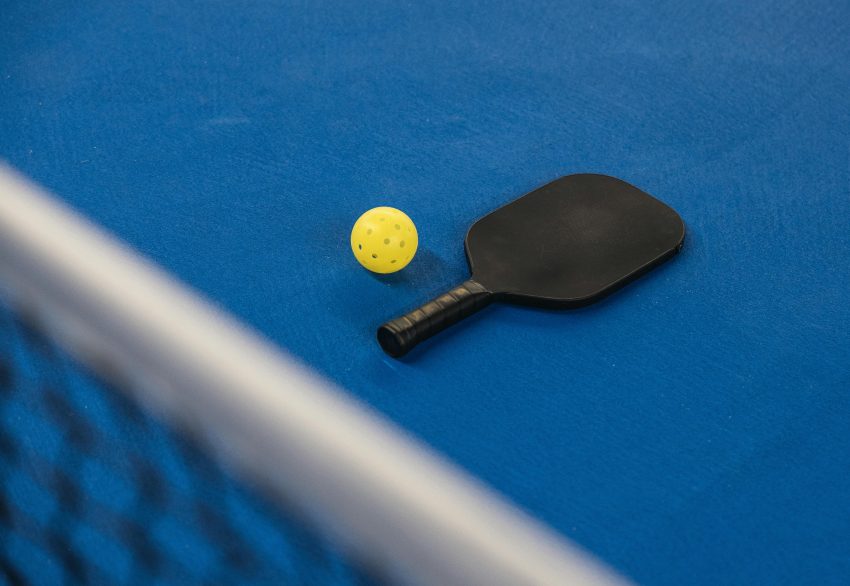Pickleball, a sport that was created by combining tennis, badminton, and ping-pong, has quickly risen to the top of the list of popular recreational activities all over the world. People are drawn to it not only because of the sheer fun it provides but also because of the numerous health benefits it bestows upon those who participate in it. Anyone, regardless of their age or degree of physical fitness, can get considerable health benefits from participating in pickleball.
In this article, you will learn six outstanding health benefits that are related to playing pickleball.
1. Cardiovascular System Health
The sport of pickleball requires players to be constantly on the go, as they must dash across the court, perform shots, and keep a rapid tempo throughout the game. Through the strengthening of the heart muscle, the improvement of circulation, and the reduction of the risk of heart disease, this aerobic activity raises the heart rate, which in turn provides benefits to cardiovascular health. Regular pickleball play can help to maintain appropriate blood pressure levels and enhance the heart’s general functioning.
2. Weight Management
Pickleball is an excellent kind of exercise for burning calories because of its dynamic nature, which includes rapid bursts of movement and continuous play. Participating in pickleball on a regular basis for weight management can help contribute to the achievement or maintenance of a healthy body weight. By participating in rallies and moving around the court, players burn calories, which, when paired with a balanced diet, can lead to weight loss or the maintenance of a healthy weight.
3. Sense of Equilibrium and Coordination
It is essential to have accurate movements, agility, and hand-eye coordination when playing pickleball. Players are required to coordinate their movements to hit the ball with precision and to position themselves strategically on the court. Playing routinely can, over time, improve a person’s balance, coordination, and motor skills, which ultimately leads to an increase in their total physical dexterity. This enhancement in balance and coordination can have beneficial effects on day-to-day activities and lower the chance of falling, particularly among individuals who are of advanced age.
4. Flexibility and Health of the Joints
Playing pickleball, in contrast to other sports that involve high-impact movements, is relatively easy on the joints while still offering a rigorous workout. The game consists of a variety of dynamic actions, such as lunges, pivots, and quick directional changes, all of which contribute to the preservation of joint flexibility and range of motion. Additionally, due to the low-impact nature of pickleball and the comfortable handles of paddles, it is acceptable for persons of varying ages and fitness levels, including those who have trouble with their joints or who have arthritis. Quality pickleball paddles are crafted with ergonomic designs and comfortable grips to reduce strain and fatigue during extended play sessions.
5. Stress Reduction and Mental Well-Being
The production of endorphins, which are neurotransmitters that promote emotions of happiness and well-being, is stimulated when one participates in physical exercise such as participating in pickleball. Engaging in regular play can be beneficial in reducing feelings of stress, worry, and depression, as well as boosting mental resilience and fostering a more optimistic view. Additionally, the social side of pickleball, which is typically played in doubles or groups, allows for the development of a sense of belonging and camaraderie, both of which are vital for maintaining mental health.
6. Brain Health and Cognitive Function
Because it needs quick reflexes, strategic thinking, and quick decision-making, pickleball is a good activity for maintaining healthy brain conditions. Cognitive abilities can be sharpened, and focus can be improved through the mental engagement that is involved in anticipating the moves of opponents, preparing shots, and modifying strategies while playing a game. Studies have shown that doing mentally taxing activities daily may improve overall brain function and reduce the risk of cognitive decline.
Conclusion
The incorporation of pickleball into one’s lifestyle can contribute to a life that is healthier, more active, and more gratifying. By promoting balance, coordination, and mental well-being, as well as improving cardiovascular health and maintaining a healthy weight, this sport, which is becoming increasingly popular, offers a comprehensive approach to the promotion of health. So, grab a paddle, head out to the court, and be ready to experience the myriad of benefits that pickleball has to offer.

